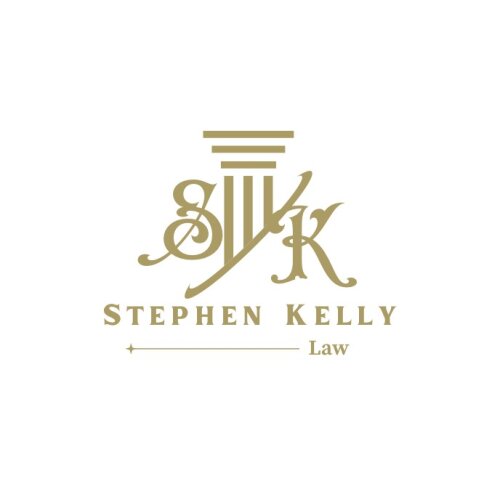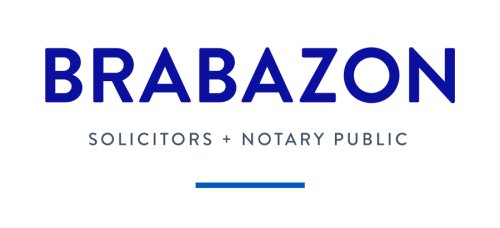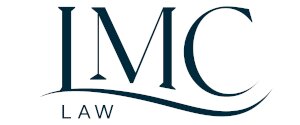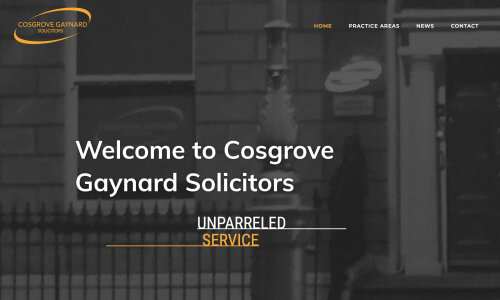Best Brokerage Lawyers in Dublin
Share your needs with us, get contacted by law firms.
Free. Takes 2 min.
Free Guide to Hiring a Real Estate Lawyer
List of the best lawyers in Dublin, Ireland
About Brokerage Law in Dublin, Ireland
Brokerage law in Dublin, Ireland, involves regulations and legal practices related to brokerage activities, including the buying and selling of securities, real estate, and other forms of assets. Brokerage services can range from stockbroking to property brokering, all requiring in-depth understanding of both legal and market intricacies. Dublin, as a major financial hub in Ireland, has well-defined laws to regulate and supervise these activities to ensure fairness, transparency, and compliance with both local and international standards.
Why You May Need a Lawyer
There are several reasons you might need a lawyer specializing in brokerage law in Dublin:
- Contract Disputes: Brokerage transactions often involve complex contracts. Disputes can arise over terms and conditions, necessitating legal intervention.
- Regulatory Compliance: Brokers must comply with strict regulatory requirements. A lawyer can help ensure all activities are in line with the relevant laws.
- Litigation: If you are facing legal action related to brokerage activities, it is crucial to have legal representation.
- Fraud and Misrepresentation: Legal advice may be required in cases involving fraud, misrepresentation, or unethical practices.
- Transactional Support: Lawyers can provide valuable guidance during the negotiation and execution of large brokerage transactions.
- Licensing and Permits: Compliance with licensing and regulatory permits can be complex, needing legal assistance.
Local Laws Overview
Dublin's brokerage laws are dictated by a combination of European Union regulations and local Irish statutes. Key points include:
- MiFID II Compliance: The Markets in Financial Instruments Directive II (MiFID II) regulates the market in financial instruments and aims to increase transparency across the European Union's financial markets.
- Central Bank of Ireland Oversight: The Central Bank of Ireland regulates broker-dealer activities, ensuring compliance with both local and EU-wide regulations.
- Data Protection Act: Brokers must adhere to the Data Protection Act 2018, which aligns with the EU's General Data Protection Regulation (GDPR).
- Consumer Protection Code: The Consumer Protection Code regulates how brokerages interact with their clients to ensure fair treatment.
- Anti-Money Laundering (AML): Brokers must comply with stringent AML laws to prevent illegal activities.
Frequently Asked Questions
1. What does a brokerage lawyer do?
A brokerage lawyer specializes in legal issues related to the buying and selling of securities, real estate, and other assets. They offer services such as drafting contracts, ensuring regulatory compliance, and representing clients in disputes.
2. How do I know if I need a lawyer for my brokerage activities?
If you're involved in complex transactions, face regulatory scrutiny, encounter legal disputes, or need to ensure compliance with local laws, you should consult a brokerage lawyer.
3. What is MiFID II and how does it affect brokerage in Dublin?
MiFID II is a European Union directive regulating financial markets and increasing transparency. It impacts brokerages by imposing stricter reporting requirements and greater transparency in trading activities.
4. What are the licensing requirements for brokers in Dublin?
Brokers must obtain specific licenses from the Central Bank of Ireland, meeting various qualification and compliance criteria.
5. How can I verify the credibility of a brokerage firm in Dublin?
Check the firm's registration with the Central Bank of Ireland and review any available regulatory filings. It's also advisable to seek legal advice to conduct thorough due diligence.
6. What should I do if I suspect fraud or unethical practices by my broker?
Immediately seek legal advice and report the matter to the appropriate regulatory bodies, such as the Central Bank of Ireland and the Financial Services Ombudsman.
7. Are brokerage contracts enforceable in Dublin?
Yes, as long as they are in compliance with local and EU regulations, and do not involve any illegal activity.
8. What legal remedies are available for breach of a brokerage contract?
Legal remedies can include damages, specific performance, or rescission of the contract, depending on the nature of the breach.
9. How are disputes between a broker and client typically resolved?
Disputes can be resolved through negotiation, mediation, arbitration, or litigation, depending on the terms of the contract and the nature of the dispute.
10. How much does it cost to hire a brokerage lawyer in Dublin?
Costs vary based on the lawyer's experience, the complexity of the case, and the required legal services. It is advisable to discuss fees upfront with your lawyer.
Additional Resources
Here are some resources that can be helpful:
- Central Bank of Ireland: Regulates and supervises brokerage activities.
- Law Society of Ireland: Provides resources on finding qualified legal representation.
- Financial Services Ombudsman: Assists with complaints against financial service providers.
- Citizens Information: Offers detailed guides and information on legal rights and obligations.
Next Steps
If you require legal assistance in brokerage activities, follow these steps:
- Identify Your Needs: Determine the specific legal services you require.
- Research Lawyers: Look for lawyers specializing in brokerage law. The Law Society of Ireland's website can be a good starting point.
- Schedule Consultations: Meet with potential lawyers to discuss your needs, their experience, and fee structures.
- Engage a Lawyer: Once you find a suitable lawyer, formally engage their services by signing a retainer agreement.
- Maintain Communication: Keep open lines of communication with your lawyer to ensure all aspects of your case are handled effectively.
Lawzana helps you find the best lawyers and law firms in Dublin through a curated and pre-screened list of qualified legal professionals. Our platform offers rankings and detailed profiles of attorneys and law firms, allowing you to compare based on practice areas, including Brokerage, experience, and client feedback.
Each profile includes a description of the firm's areas of practice, client reviews, team members and partners, year of establishment, spoken languages, office locations, contact information, social media presence, and any published articles or resources. Most firms on our platform speak English and are experienced in both local and international legal matters.
Get a quote from top-rated law firms in Dublin, Ireland — quickly, securely, and without unnecessary hassle.
Disclaimer:
The information provided on this page is for general informational purposes only and does not constitute legal advice. While we strive to ensure the accuracy and relevance of the content, legal information may change over time, and interpretations of the law can vary. You should always consult with a qualified legal professional for advice specific to your situation.
We disclaim all liability for actions taken or not taken based on the content of this page. If you believe any information is incorrect or outdated, please contact us, and we will review and update it where appropriate.














